News
-
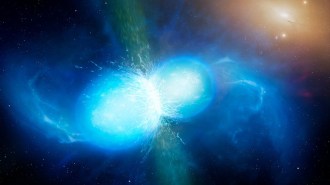 Space
SpaceStrontium is the first heavy element detected from a neutron star merger
The discovery of strontium created inside a neutron star smashup gives the clearest picture yet of what goes on inside this chaotic environment.
-
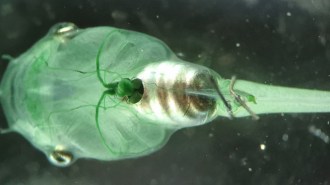 Health & Medicine
Health & MedicineAlgae inside blood vessels could act as oxygen factories
Two types of light-responsive algae make oxygen inside tadpoles’ blood vessels.
-
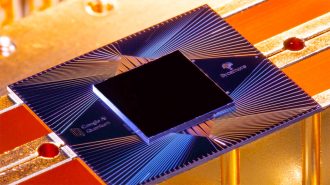 Quantum Physics
Quantum PhysicsGoogle officially lays claim to quantum supremacy
The quantum computer Sycamore reportedly performed a calculation that even the most powerful supercomputers available can’t reproduce.
-
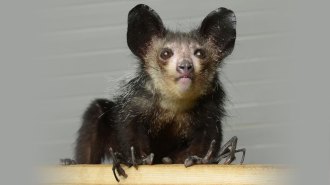 Life
LifeAye-ayes just got weirder with the discovery of a tiny, sixth ‘finger’
Aye-ayes have a sixth “finger,” or pseudothumb, that may compensate for other, overspecialized fingers by helping the lemurs grip things.
By Sofie Bates -
 Health & Medicine
Health & MedicineProzac proves no better than a placebo in treating kids with autism
In a small clinical trial, drugs called selective serotonin reuptake inhibitors didn’t ease obsessive-compulsive symptoms in children with autism.
-
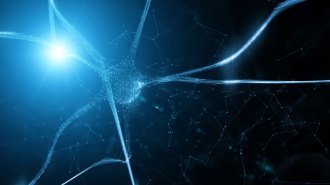 Neuroscience
NeuroscienceLight from outside the brain can turn on nerve cells in monkey brains
An extra-sensitive light-responsive molecule allowed nerve cells to be switched on or off with dim light.
-
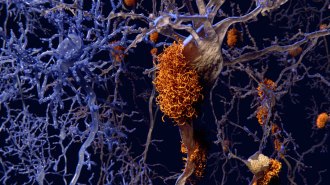 Neuroscience
NeuroscienceAlzheimer’s may scramble metabolism’s connection to sleep
Mice designed to have brain changes that mimic Alzheimer’s disease have altered reactions to blood sugar changes.
-
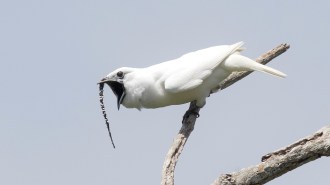 Animals
AnimalsWhite bellbirds have the loudest known mating call of any bird
White bellbirds have the loudest mating call, according to scientists who compared the songs of bellbirds and screaming pihas in the Brazilian Amazon.
By Sofie Bates -
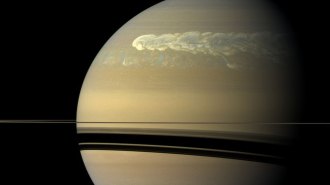 Planetary Science
Planetary ScienceAstronomers have spotted a new type of storm on Saturn
In 2018, telescopes on Earth and in space identified a never-before-seen kind of storm activity on the ringed planet.
-
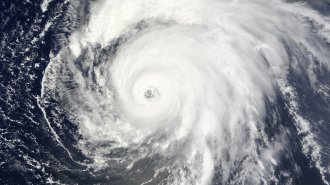 Earth
EarthPowerful storms may be causing offshore ‘stormquakes’
A perfect-storm mixture of hurricane, ocean and seafloor topography can create distinct seismic signals called “stormquakes.”
-
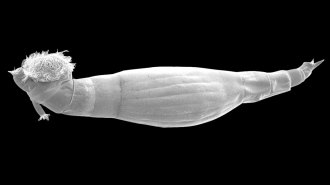 Health & Medicine
Health & MedicineThese tiny aquatic animals secrete a compound that may help fight snail fever
A newly identified molecule from rotifers paralyzes the larvae of worms that cause schistosomiasis, which affects over 200 million people worldwide.
By Sofie Bates -
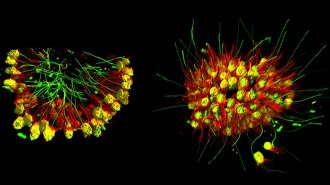 Life
LifeAcrobatic choanoflagellates could help explain how multicellularity evolved
A newfound single-celled microbe species forms groups of multiple individual organisms that change shape in response to light.